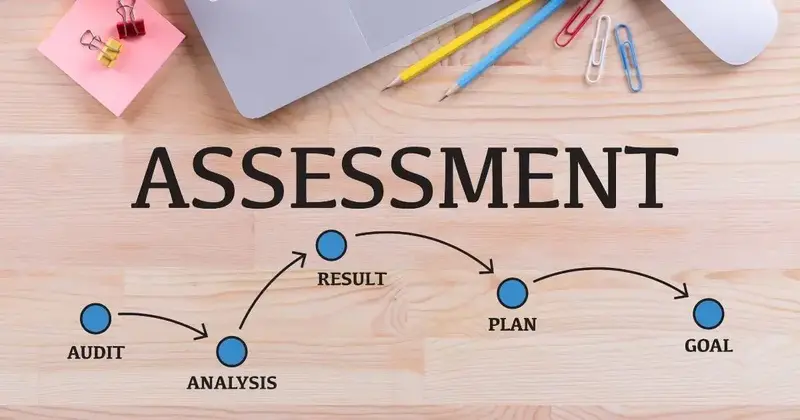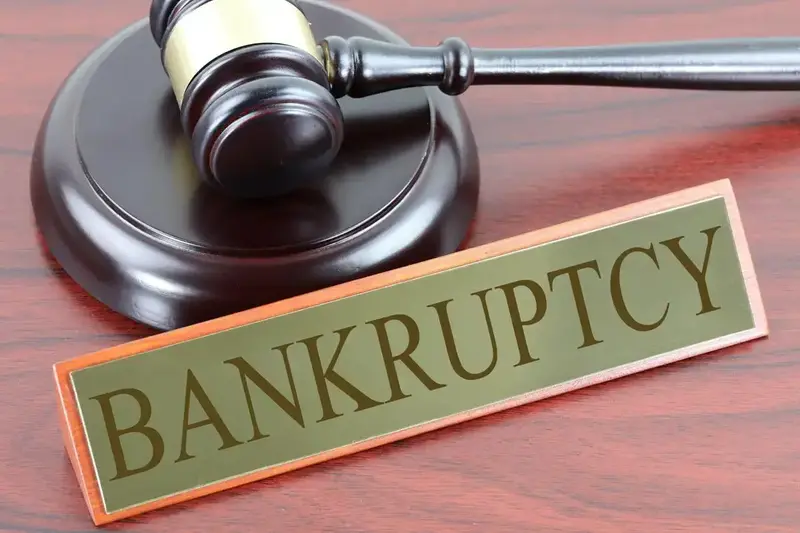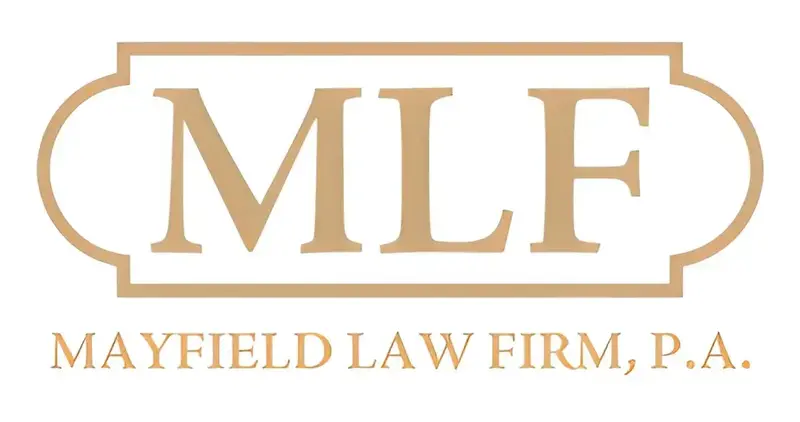Tupelo bankruptcy lawyer help clients understand their options, such as Chapter 7 or Chapter 13 bankruptcy, and navigate the complex legal procedures involved. They advise on debt management, negotiation with creditors, and other bankruptcy alternatives. In Tupelo, as in any community, financial challenges can arise unexpectedly. When individuals and businesses face the prospect of bankruptcy, the guidance of a Tupelo bankruptcy lawyer becomes invaluable. To find a Tupelo bankruptcy lawyer, consider checking local legal directories, contacting the Mississippi State Bar Association, or seeking recommendations from friends, family, or colleagues. Additionally, online platforms and legal websites often provide reviews and ratings to help you evaluate potential Tupelo bankruptcy lawyers.
In this article, we will examine understanding bankruptcy in Tupelo, Tupelo bankruptcy lawyer costs, the role of a Tupelo bankruptcy lawyer, initial consultation and assessment with a Tupelo bankruptcy lawyer, protection and relief offered by Tupelo bankruptcy lawyer, filing for bankruptcy in Tupelo, life after bankruptcy, finding the right Tupelo bankruptcy lawyer provider and finally the top companies that provide the Tupelo bankruptcy lawyer.
- Understanding Bankruptcy in Tupelo
- Tupelo Bankruptcy Lawyer Costs
- The Role of a Tupelo Bankruptcy Lawyer
- Initial Consultation and Assessment with a Tupelo Bankruptcy Lawyer
- Protection and Relief Offered by Tupelo Bankruptcy Lawyer
- Filing for Bankruptcy in Tupelo
- Life After Bankruptcy
- Finding the Right Tupelo Bankruptcy Lawyer Provider
- Top Companies Providing Tupelo Bankruptcy Lawyer
- Conclusion
- Tupelo Bankruptcy Lawyer FAQ
Understanding Bankruptcy in Tupelo
Bankruptcy is a legal process allowing individuals or businesses to file for relief from their debts when they cannot pay them. The process is governed by federal law, and each state, including Mississippi, where Tupelo is located, may have its own specific rules and regulations regarding bankruptcy.

Here is a general overview of bankruptcy in the United States and how it might apply in Tupelo, Mississippi:
- Types of Bankruptcy:
- Chapter 7: This chapter is often called “liquidation” bankruptcy. In this bankruptcy, a trustee is appointed to sell the debtor’s non-exempt assets to repay creditors. Many types of unsecured filing debts can be discharged in Chapter 7.
- Chapter 13: This is a reorganization bankruptcy where individuals with a regular income create a repayment plan to pay off all or part of their multiple debts over three to five years.
- Chapter 11: Businesses facing financial distress often turn to Chapter 11 bankruptcy, which allows for the reorganization of secured debts while the business continues its operations. A Tupelo bankruptcy lawyer can guide companies through this complex process, helping them emerge stronger on the other side.
- Filing for Bankruptcy: Individuals or businesses in Tupelo, Mississippi, seeking bankruptcy protection typically file with the U.S. Bankruptcy Court for the Northern District of Mississippi. The federal bankruptcy court’s website and local legal resources can provide detailed information on the filing process.
- Automatic Stay: An automatic stay goes into effect once bankruptcy is filed. This prevents creditors from pursuing collection activities, such as lawsuits, wage garnishments, or phone calls during the bankruptcy process.
- Exemptions: Bankruptcy law allows debtors to keep certain property exempt from the bankruptcy estate. In Mississippi, individuals can use either federal or state bankruptcy exemptions, but they cannot mix them. Common exemptions may include a homestead exemption, personal property exemptions, and more.
- Credit Counseling and Financial Management Courses: Individuals filing for bankruptcy must complete credit counseling and a financial management course after filing.
- Impact on Credit: Bankruptcy significantly impacts one’s credit score, and the bankruptcy record may stay on the credit report for several years. However, it is still possible to rebuild credit over time.
- Legal Assistance: It is advisable for individuals considering bankruptcy to consult with a local bankruptcy attorney. Legal advice can help individuals understand their options, navigate the complexities of bankruptcy laws, and make informed decisions based on their specific financial situation.
- Discharge of Debts: Upon successful completion of the bankruptcy process, eligible debts are liquidated. This means the debtor is no longer legally obligated to repay these debts.
Navigating the complexities of bankruptcy in Tupelo, Mississippi, requires a clear understanding of federal and state laws governing the process. From evaluating financial situations and choosing the appropriate personal bankruptcy chapter to representing clients in court and negotiating with creditors, local bankruptcy attorneys play a pivotal role in helping debtors secure a fresh start. It’s essential for individuals considering bankruptcy in Tupelo to seek professional legal counsel to navigate the process effectively and make informed decisions tailored to their unique circumstances.
Tupelo Bankruptcy Lawyer Costs
When facing bankruptcy in Tupelo, Mississippi, understanding the costs associated with hiring a experienced bankruptcy lawyer is essential. These costs can vary depending on the complexity of your case, the type of bankruptcy you are filing for, and the local bankruptcy attorney’s experience and reputation. Check out a breakdown to help you understand what to expect:
- Chapter 7 Bankruptcy:
- Description: Liquidation bankruptcy for individuals or businesses, typically used by those with limited income and assets.
- Typical Costs:
- Attorney Fees: $1,000 – $1,500
- Filing Fee: $338
- Miscellaneous Costs: Credit counseling and debtor education courses, around $50-$100.
- Chapter 13 Bankruptcy:
- Description: Reorganization bankruptcy for individuals with regular income, allowing them to keep their property and pay debts over time.
- Typical Costs:
- Attorney Fees: $2,500 – $3,500
- Filing Fee: $313
- Miscellaneous Costs: Credit counseling and debtor education courses, around $50-$100.
- Factors Influencing Costs
- Complexity of the Case: More complicated cases with numerous creditors, significant assets, or contested issues can drive up attorney fees.
- Attorney Experience: More experienced attorneys or those with a strong reputation may charge higher fees.
- Geographical Location: While this guide focuses on Tupelo, fees can vary within the region and compared to national averages.
- Payment Plans and Options
- Upfront Fees: Many bankruptcy attorneys require a portion of the fee upfront before filing your case.
- Payment Plans: Some attorneys offer payment plans, particularly for Chapter 13 cases, which can spread the cost over several months.
- Pro Bono Services: For those with extremely limited income, there might be legal aid services or pro bono options available.
- Additional Costs
- Credit Counseling and Debtor Education: Mandatory courses are required by the bankruptcy process, typically costing between $50 and $100.
- Court Costs: Besides filing fees, there might be additional court costs depending on the specifics of your case.
- Miscellaneous Costs: These can include things like document retrieval, copying fees, and other administrative expenses.
Filing for bankruptcy in Tupelo involves various costs, but understanding these fees and planning accordingly can make the process more manageable. By researching and consulting with local attorneys, you can find a solution that fits your financial situation and helps you navigate through this challenging time.
The Role of a Tupelo Bankruptcy Lawyer
A Tupelo bankruptcy lawyer plays a crucial role in guiding individuals and businesses through the legal process of bankruptcy. Bankruptcy is a legal proceeding in which a person or company that cannot repay their outstanding debts seeks relief from their financial struggles. Assisting individuals in navigating debt settlement processes, a local bankruptcy attorney can provide expert guidance and legal support to help negotiate with creditors and work towards resolving outstanding debts. The role of a Tupelo bankruptcy lawyer includes the following:
- Assessment of Financial Situation: The Tupelo bankruptcy lawyer will assess the client’s financial situation to determine whether bankruptcy is appropriate. They will review income, assets, credit card debts, and other relevant financial rehabilitation information.
- Exploring Alternatives: Tupelo bankruptcy lawyers explore alternative solutions to bankruptcy, such as debt negotiation, debt settlement, or debt consolidation, depending on the client’s circumstances.
- Educating Clients: One of the key responsibilities is to educate clients about the different types of bankruptcy (Chapter 7, Chapter 13, etc.) and help them understand the implications and consequences of each.
- Choosing the Right Bankruptcy Chapter: Based on the client’s financial situation, the Tupelo bankruptcy lawyer will advise on the most suitable personal bankruptcy chapter to file for bankruptcy. Chapter 7 is often chosen for liquidation, while Chapter 13 involves a repayment plan.
- Representation in Court: The Tupelo bankruptcy lawyer represents the client in court proceedings, including the meeting of creditors (341 meetings), hearings, and any other court appearances that may be necessary.
- Negotiating with Creditors: The Tupelo bankruptcy lawyer may negotiate with creditors to reach settlements or restructured bankruptcy plan payments outside the formal bankruptcy process. This can help clients avoid some of the negative consequences associated with bankruptcy.
- Protection from Creditors: Once bankruptcy is filed, the Tupelo bankruptcy lawyer helps protect the client from creditor harassment, garnishments, and other collection actions through an automatic stay.
- Post-Bankruptcy Counseling: After the bankruptcy is completed, the Tupelo bankruptcy lawyer may guide rebuilding credit and managing finances to avoid future financial challenges.
Hiring a knowledgeable and experienced Tupelo bankruptcy lawyer or any other location is essential to navigate the complex legal procedures associated with bankruptcy and achieve the best possible outcome for the client.
Steps in the Bankruptcy Process
| Step | Description | Duration |
| Consultation | Have an initial meeting with a lawyer to discuss your case. | 1-2 hours |
| Credit Counseling | Mandatory counseling session before filing. | 1-2 hours |
| Filing the Petition | Submitting all required documents to the court. | Immediate |
| Automatic Stay | Halting all collection activities against you. | Instantaneous |
| Meeting of Creditors | Creditors are likely to ask questions about your financial situation and your bankruptcy filing. | 30-45 days post-filing |
| Debt Discharge/Plan Approval | Finalization of the bankruptcy process. | 3-6 months for Chapter 7; 3-5 years for Chapter 13 |
Initial Consultation and Assessment with a Tupelo Bankruptcy Lawyer
During the initial consultation with a Tupelo bankruptcy lawyer, the attorney will thoroughly assess the client’s financial situation to determine the most appropriate course of action. This meeting is crucial in understanding the client’s needs, providing legal advice, and outlining the options available.

Here’s what typically happens during the initial consultation and assessment:
- Client Interview: The Tupelo bankruptcy lawyer will conduct an in-depth interview with the client to gather information about their financial situation. This includes details about income, expenses, assets, debts, and any legal issues that may be relevant.
- Document Review: The client is usually asked to provide relevant financial documents, such as tax returns, bank statements, pay stubs, mortgage information, and creditors. These documents help the reputable debt resolution lawyer assess the complete financial picture.
- Debt Analysis: The Tupelo bankruptcy lawyer will analyze the nature and amount of the client’s debts. This analysis is crucial in determining whether bankruptcy is viable and, if so, which chapter (Chapter 7, Chapter 13, etc.) would be most appropriate.
- Educating the Client: The Tupelo bankruptcy lawyer will explain the different types of bankruptcy, their implications, and the potential consequences for the client’s financial future. This education is essential for the client to make informed decisions.
- Client Questions and Concerns: The client will be able to ask questions and address any concerns about the bankruptcy process. Clear communication is essential to ensure clients understand their options and feel comfortable moving forward.
- Fee Structure: The Tupelo bankruptcy lawyer will discuss their fee structure, including any upfront costs for the initial consultation and the overall costs of handling the bankruptcy case. Some bankruptcy attorneys offer free consultations.
- Decision-Making: After the assessment, the client and Tupelo bankruptcy lawyer will collaboratively decide on the best course of action. If bankruptcy is chosen, the skilled debt resolution lawyer will explain the next steps, including preparing and filing the necessary documents.
The initial consultation and assessment are the foundation for a successful attorney-client relationship. It allows the Tupelo bankruptcy lawyer to understand the client’s unique debt situation, offer tailored advice, and guide them through the legal process with clarity and confidence.
Protection and Relief Offered by Tupelo Bankruptcy Lawyer
Bankruptcy provides individuals and businesses with legal protection and relief from overwhelming debt. The specific protections and relief offered can vary based on the type of bankruptcy filed (Chapter 7, Chapter 13, etc.).

Here are some key aspects of protection and relief provided by bankruptcy:
- Debt Discharge: The primary goal of bankruptcy is to discharge or eliminate certain debts, providing a fresh start for the debtor. In a Chapter 7 bankruptcy, eligible unsecured debts may be removed entirely. In Chapter 13, a portion of the debts may be discharged after completing a court-approved repayment plan.
- Repayment Plans (Chapter 13): Chapter 13 bankruptcy allows individuals with a regular income to propose a repayment plan to pay off their debts over three to five years gradually. This can help prevent foreclosure or repossession and allows debtors to catch up on missed payments.
- Protection of Exempt Assets: Bankruptcy law provides exemptions that protect certain types and amounts of property from being used to satisfy creditors’ claims. Exempt assets are typically necessary for day-to-day living, such as a primary residence, clothing, and household goods.
- Creditors’ Meetings (341 Meeting): Bankruptcy proceedings include a meeting of creditors (341 meetings), where the debtor, trustee, and creditors may attend. While creditors can ask questions, this meeting is generally straightforward and allows the trustee to ensure the accuracy of the filed documents.
- Dischargeable Debts: Bankruptcy discharges most unsecured debts, such as credit card debt, medical bills, and personal loans. However, certain debts, like student loans, child support, and some tax debts, may not be dischargeable.
- Avoidance of Foreclosure and Repossession: Bankruptcy can halt foreclosure proceedings and prevent the repossession of assets. Chapter 13 allows debtors to catch up on mortgage or car loan arrears.
- Utilities Protection: Bankruptcy can prevent the disconnection of utility services due to unpaid bills. The automatic stay provides a temporary shield against utility shut-offs.
- Financial Education Requirements: In both Chapter 7 and Chapter 13 bankruptcies, individuals are typically required to undergo financial counselling and education. This helps debtors develop better financial habits and understanding to avoid future financial difficulties.
It’s essential to note that while bankruptcy provides significant relief, it may have consequences, such as a negative impact on credit scores. Consulting with a debt resolution attorney is crucial to understanding the specific protections and relief available based on individual circumstances and the type of bankruptcy pursued.
Filing for Bankruptcy in Tupelo
Filing for bankruptcy in Tupelo, Mississippi, follows a legal process governed by federal law. The United States Bankruptcy Code outlines various chapters under which an individual or business can file for bankruptcy, including Chapter 7 and Chapter 13. Here is a general overview of the steps involved in filing for bankruptcy in Tupelo:
- Consultation with a Bankruptcy Lawyer: Before filing for bankruptcy, it is advisable to consult with an experienced Tupelo bankruptcy lawyer. The lawyer will assess your financial situation, advise whether bankruptcy is the right option, and guide you.
- Credit Counseling: Individuals must undergo credit counseling from a government-approved agency before filing for bankruptcy. This counseling helps evaluate your financial situation and explore alternatives to bankruptcy. The certificate of completion must be filed with the bankruptcy court.
- Gathering Financial Documents: Work with your Tupelo bankruptcy lawyer to gather all necessary financial documents, including income statements, tax returns, a list of assets and liabilities, and creditors.
- Filing the Bankruptcy Petition: The bankruptcy process officially begins with filing a bankruptcy petition. This document includes detailed information about your financial situation and the type of bankruptcy you are filing (Chapter 7 or Chapter 13). Your Tupelo bankruptcy lawyer will assist in preparing and filing this petition with the U.S. Bankruptcy Court in the Northern District of Mississippi, which has jurisdiction over Tupelo.
- Automatic Stay: Upon filing, an automatic stay goes into effect, which prohibits most creditors from pursuing collection actions, including wage garnishment, foreclosure, or repossession. This provides immediate business bankruptcy debt relief to the filer.
- Appointment of Trustee: In Chapter 7 bankruptcy cases, a trustee is appointed to oversee the liquidation of non-exempt assets. In Chapter 13 cases, a trustee administers the repayment plan. The trustee plays a key role in the bankruptcy process.
- Meeting of Creditors (341 Meeting): Approximately 20-40 days after filing, there is a mandatory meeting of creditors, also known as the 341 meeting. The filer, their debt resolution lawyer, and the trustee attend this meeting. Creditors may attend to ask questions, although it is uncommon.
- Chapter 13 Repayment Plan (if applicable): In Chapter 13 bankruptcy, a repayment plan is proposed to the court. The plan outlines how the filer will repay creditors over three to five years. The court must approve the plan.
- Discharge of Debts: Upon completing the bankruptcy process, the court issues a discharge order. This order eliminates most eligible debts, giving the filer a fresh financial start.
- Post-Bankruptcy Counseling: After filing, individuals must complete a financial management course from a government-approved institution. The certificate of completion must be submitted to the court as the final document.
It’s important to note that bankruptcy laws can be complex, and the specific steps may vary based on individual circumstances. Working closely with an experienced Tupelo bankruptcy lawyer ensures that you navigate the process correctly and maximize the benefits available under bankruptcy law.
Life After Bankruptcy
Life after bankruptcy can be a period of financial recovery and a fresh start. While bankruptcy has certain consequences, it also provides an opportunity to rebuild your financial health.

Here are some key aspects to consider as you navigate life after bankruptcy:
- Financial Education and Planning:
- Financial Counseling: Many bankruptcy processes include mandatory financial counselling. Use this to gain financial education and develop better money management habits.
- Budgeting: Create a realistic budget to manage your expenses and income. Tracking your finances can help you avoid future financial challenges.
- Rebuilding Credit:
- Secured Credit Cards: Consider obtaining a secure credit card to rebuild your credit. A cash deposit backs secured cards and can be easier to qualify for.
- Timely Payments: Make timely payments on any remaining debts or new credit accounts. Consistent, responsible credit use can positively impact your credit score over time.
- Review Credit Reports: Regularly review your credit reports to ensure accurate information. You are entitled to one free credit report from each major credit bureau annually.
- Seek Professional Advice: Consult financial advisors or credit counsellors for personalized advice on managing your finances post-bankruptcy. They can help you plan for the future and avoid common pitfalls.
- Understand the Impact on Employment: While bankruptcy should not impact your employment, some employers may check credit reports as part of the hiring process.
- Set Realistic Goals: Set achievable financial goals and milestones. Celebrate small victories as you work towards larger objectives.
- Avoid High-Risk Borrowing: Be cautious about taking on new debt. Avoid high-interest loans or credit arrangements that could lead to financial strain.
- Educate Yourself on Financial Rights: Understand your rights as a consumer, especially about debt collection bankruptcy practices. Familiarize yourself with consumer protection laws.
- Focus on Long-Term Financial Health: Use the bankruptcy experience as a turning point to focus on long-term financial health. Consider your financial decisions carefully and make choices that align with your goals.
- Patience and Persistence: Rebuilding your financial life takes time. Be patient with the process and persistent in improving your financial situation.
- Consult with Legal Professionals: If you have legal questions or concerns about bankruptcy, consult legal professionals. They can guide on any post-bankruptcy issues that may arise.
Remember that bankruptcy is a tool for financial relief and a fresh start. While it may have implications, it is not the end of your financial journey. Taking proactive steps and making informed financial decisions can rebuild your credit, establish financial stability, and work towards a more secure financial future.
Finding the Right Tupelo Bankruptcy Lawyer Provider
Finding the right Tupelo bankruptcy lawyer is crucial for a successful bankruptcy filing and navigating the legal process effectively. Here are steps you can take to find the right Tupelo bankruptcy lawyer provider:
- Research Local Lawyers: Research local Tupelo bankruptcy lawyer, Mississippi. You can use online legal directories, bar association websites, and recommendations from friends, family, or colleagues.
- Check Qualifications and Experience: Look for lawyers who specialize in bankruptcy law and have experience handling cases similar to yours. Check their educational background, professional affiliations, and any certifications related to bankruptcy law.
- Read Client Reviews: Online reviews and testimonials from previous clients can provide insights into a debt resolution lawyer’s reputation and how they handle cases. Websites like Avvo, Google Reviews, or Yelp may have helpful information.
- Consult Bar Associations: Contact the Mississippi State Bar or local bar associations for information on bankruptcy lawyers in Tupelo. They can provide lists of qualified attorneys and any disciplinary history.
- Seek Recommendations: Ask for recommendations from people you trust who may have gone through a similar situation. Personal referrals can provide valuable insights into a debt resolution lawyer’s professionalism and effectiveness.
- Ask about Fees: Inquire about the lawyer’s fee structure during the initial consultation. Some Tupelo bankruptcy lawyers offer free initial consultations and many work on a flat fee basis for bankruptcy cases.
- Consider Accessibility: Choose a Tupelo bankruptcy lawyer who is accessible and responsive. Bankruptcy cases involve various deadlines and requirements, so it’s essential to have a lawyer who can promptly address your concerns.
- Check for Complaints: Look for complaints or disciplinary actions against the Tupelo bankruptcy lawyer. Be sure to check with your State Bar Association for this information.
- Compare Multiple Options: Consult with multiple Tupelo bankruptcy lawyers before making a decision. This lets you compare their approaches, fees, and how comfortable you feel working with them.
- Check for Specializations: Some Tupelo bankruptcy lawyers may specialize in specific areas within bankruptcy law. For instance, some may focus on consumer bankruptcy, while others may specialize in business bankruptcies.
- Get a Written Agreement: Once you’ve selected a Tupelo bankruptcy lawyer, ensure you receive a written agreement that clearly outlines the terms of representation, including fees and services.
By taking these steps, you can find a qualified and trustworthy bankruptcy Tupelo bankruptcy lawyer to guide you through the bankruptcy process and help you achieve a fresh financial start.
Top Companies Providing Tupelo Bankruptcy Lawyer
Navigating through financial difficulties can be challenging, but with the assistance of experienced bankruptcy lawyers in Tupelo, you can find practical solutions to your financial problems. Several reputable companies in the area specialize in providing expert legal guidance for individuals and businesses seeking business bankruptcy debt relief from overwhelming debts. These firms are equipped with knowledgeable attorneys who understand the intricacies of bankruptcy law and are dedicated to helping clients achieve a fresh financial start. Whether you are considering Chapter 7, Chapter 13, or other bankruptcy options, these companies offer tailored advice and support to guide you through the legal process, ensuring that your parental rights are protected and your financial future is on a path toward recovery.
Here is a list of the best Tupelo bankruptcy lawyer companies:
- Mayfield Law
- Justia Law Firm
- Bryson Law Firm
Let’s review the best Tupelo bankruptcy lawyer companies in order:
Mayfield Law

Mayfield Law is a law firm that represents clients in auto accident, Social Security disability and bankruptcy cases. In the complex landscape of legal matters, individuals and businesses often find themselves navigating a maze of regulations, contracts, and disputes. In such challenging times, the guidance of a reliable and experienced law firm becomes invaluable. Mayfield Law stands out as a beacon of legal expertise, offering a comprehensive range of services that cater to the diverse needs of its clients.
In the ever-evolving legal landscape, having a reliable and experienced law firm by your side is crucial. Mayfield Law‘s commitment to excellence, diverse expertise, and client-focused approach make it a standout choice for individuals and businesses seeking top-notch legal representation. Whether faced with a challenging legal dispute, seeking proactive business counsel, or planning for the future, clients can trust Mayfield Law to navigate the legal waters with skill and dedication.
Tupelo Bankruptcy Lawyer with Mayfield Law
In times of financial distress, individuals and businesses often face the daunting prospect of bankruptcy. When navigating the complexities of bankruptcy law, having a skilled and experienced legal team by your side is essential. Mayfield Law in Tupelo stands out as a reliable partner, offering compassionate and expert guidance to those seeking a fresh financial start through bankruptcy.
Mayfield Law‘s dedicated team of Tupelo bankruptcy lawyers brings a wealth of experience in guiding clients through various personal bankruptcy chapter, including Chapter 7 and Chapter 13. Whether you are an individual facing overwhelming debt or a business seeking reorganization, the firm’s attorneys are well-equipped to assess your unique situation and provide strategic solutions.
Mayfield Law‘s Tupelo bankruptcy lawyers combine legal expertise with a client-focused approach to guide individuals and businesses towards financial recovery. Whether you are considering Chapter 7 or Chapter 13 bankruptcy, the firm’s experienced attorneys are ready to provide the support and guidance you need to navigate the complexities of bankruptcy law and achieve a fresh financial start.
To learn more about Mayfield Law, you can review this article: Mayfield Law
From this link you can visit Mayfield Law‘s website: https://www.mayfieldlawfirm.com/
Mayfield Law Phone Number: 662.841.8844
Justia Law Firm

Justia Law Firm is rather a company that provides online legal information and services. Justia was founded in 2003 by Tim Stanley and focuses on making legal information freely available online. The company offers a variety of resources, including a comprehensive database of case law, legal forms, and legal commentary. They also provide a platform for experienced debt resolution lawyers to create and manage their online profiles. Justia Law Firm‘s mission is to advance the availability of legal resources for individuals, businesses, and legal professionals. They aim to make legal information more accessible and transparent to help people understand their rights and obligations.
Tupelo Bankruptcy Lawyer with Justia Law Firm
Justia Law Firm provides a platform for law firms and attorneys to create profiles and share information about their services. If you’re looking for a Tupelo bankruptcy lawyer, Mississippi, you can use the Justia platform to search for attorneys in that area.
To find a Tupelo bankruptcy lawyer on Justia Law Firm, you can visit the Justia Lawyers Directory and enter relevant search criteria, such as location (Tupelo, Mississippi) and bankruptcy practices. This should help you identify attorneys who specialize in bankruptcy law in the specified location.
Once you have a list of potential attorneys, you may want to review their profiles, including their experience, background, and client reviews, to help you make an informed decision about which lawyer may be the right fit for your needs. Keep in mind that it’s essential to contact the attorney directly to discuss your specific situation and get more information about their services, fees, and availability.
To learn more about Justia Law Firm, you can review this article: Justia Law Firm
From this link you can visit Justia Law Firm‘s website: https://www.justia.com/lawyers
Justia Law Firm Phone Number: (888) 587-8421
Bryson Law Firm

Bryson Law Firm is a fine law firm founded by attorney Kerry M. Bryson. Tax laws are notorious for their complexity, often leaving individuals and businesses feeling overwhelmed and uncertain about their obligations. Bryson Law Firm specializes in demystifying these laws, breaking down intricate statutes and regulations into clear, actionable steps. Through personalized consultations and comprehensive analyses, they empower clients with the knowledge needed to make informed decisions regarding their taxes.
One of the key pillars of Bryson Law Firm‘s approach is proactive tax planning. Rather than merely reacting to tax issues as they arise, they work closely with clients to develop strategic plans aimed at minimizing tax liabilities while maximizing savings. By staying ahead of changes in tax legislation and leveraging available incentives, they help clients optimize their financial positions and achieve their goals.
Tupelo Bankruptcy Lawyer with Bryson Law Firm
In times of financial distress, individuals and businesses often face tough decisions. The complexities of bankruptcy law can make these situations even more challenging to navigate. However, with the expertise of Bryson Law Firm in Tupelo, you can find the support and guidance needed to make informed decisions and regain control of your financial future.
Bryson Law Firm in Tupelo boasts a team of seasoned Tupelo bankruptcy lawyers who specialize in providing comprehensive legal assistance in matters of bankruptcy. Their in-depth knowledge of both federal and state bankruptcy laws enables them to guide clients through the intricacies of Chapter 7, Chapter 11, and Chapter 13 bankruptcy proceedings.
In times of financial uncertainty, Bryson Law Firm stands as a beacon of support, offering legal guidance and strategic solutions to help clients overcome their financial debt challenges and embark on a path to a brighter financial future.
To learn more about Bryson Law Firm, you can review this article: Bryson Law Firm
From this link you can visit Bryson Law Firm‘s website: https://www.brysonlawfirmpllc.com/
Bryson Law Firm Phone Number: 662-205-0008
Conclusion
In conclusion, hiring a Tupelo bankruptcy lawyer can be a crucial step in navigating the complex legal landscape of bankruptcy proceedings. Whether you are an individual facing financial challenges or a business seeking business bankruptcy debt relief, a skilled Tupelo bankruptcy lawyer can provide invaluable guidance and representation. With their expertise, they can help you understand your options, protect your rights, and work towards a favorable resolution. The intricacies of bankruptcy law require a knowledgeable professional who can advocate for your best interests, and a Tupelo bankruptcy lawyer can be a valuable ally in your journey toward financial recovery.
Tupelo Bankruptcy Lawyer FAQ
Suppose you’re considering bankruptcy or have already decided to file. In that case, you’re likely feeling a mix of stress and confusion. Navigating the complex legal landscape of bankruptcy can be daunting, especially when you’re trying to understand the implications for your financial future. A Tupelo bankruptcy lawyer can be your guide through this challenging process, offering expert advice and personalized solutions. This FAQ aims to address the most common questions and concerns, helping you gain clarity and confidence as you take steps toward financial stability.
How to file for bankruptcy without a lawyer?
Filing for bankruptcy without a lawyer involves:
1. Confirming eligibility.
2. Gathering financial documents.
3. Completing credit counseling.
4. Filling out bankruptcy forms.
5. Filing forms with the court and paying the fee.
6. Attending the 341 Meeting of Creditors.
7. Completing a financial management course.
8. Following court procedures and deadlines.
9. Receiving a discharge if the process is successful.
However, it is strongly recommended to consult with a bankruptcy attorney for guidance and to avoid potential pitfalls.
How to file bankruptcy in Pa without a lawyer?
Filing for bankruptcy in Pennsylvania without a lawyer involves gathering financial information, completing required forms from the U.S. Bankruptcy Court, filing them with the appropriate court, attending mandatory meetings, and completing a financial management course. However, it is strongly recommended to consult with a bankruptcy attorney or at least seek legal advice due to the complexities involved.
How do you pay a bankruptcy lawyer?
You typically pay a bankruptcy lawyer through an agreed-upon fee structure, such as hourly rates, flat fees, or retainers, and the payment is usually made in advance or at specific milestones in the legal process.
How long does the bankruptcy process take?
The duration of the bankruptcy process varies, but generally, Chapter 7 takes about 3 to 6 months, while Chapter 13 lasts 3 to 5 years.






















